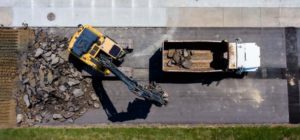One of the most common queries we receive is how many apartments, units or townhouses can be built on a particular site.
Developers call this yield and it’s important because it helps calculate a project’s potential profit.
Calculating yield is not as easy as A + B = C. There are a number of factors that can influence site yield.
In order to give an educated guess regarding yield, we need answers to a few questions. Information needed to estimate yield might include:
- The site address in order to review applicable zoning, overlay, and code constraints and determine how high you can likely build and your car parking requirements
- Site size
- Number and mix of housing proposed (i.e. number of 1, 2 and/or 3 bedroom units and their expected square meterage).
If you don’t have the above information as a minimum, providing an educated guess of site yield is almost impossible or likely to be very unreliable.
One of the most important things during site analysis is to have a concept plan prepared for the site. This will help to determine whether your proposed product will fit on the site and meet all of the requirements.
The more information your town planner has, the more reliable the yield prediction. Another important point is that things change! A lot of people compare their land to others and assume that they have the same development potential. In some cases they are in a different zone or may have other constraints. In other cases planning requirements have changed or simply the council interpretation of certain matters have.
Ultimately no town planner can guarantee site yield as the decision to approve or reject an application rests with council. A number of factors, known and unknown, play into the final outcome.
Property development is about calculated risk and being comfortable with cards you have and may be dealt with during the process.
If you need help with due diligence for a site we offer obligation free quotes. All you need to do is email us via office@consultplanning.com.au or give us a quick call on 1300 017 540.
Disclaimer: While every effort has been made to provide accurate information, Consult Planning does not guarantee that this blog article is free from errors or omissions or is suitable for your intended use. Requirements and standards frequently change so every individual proposal should be thoroughly investigated.







